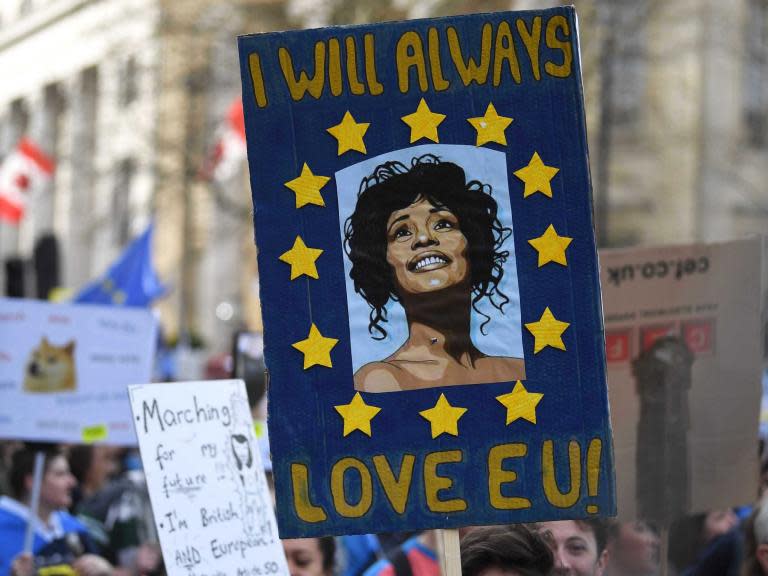For young people like me, the Brexit mess has sparked a much bigger debate about the future of politics
My friend and fellow campaigner Amanda Chetwynd-Cowieson said it best: “From the despair of three years ago, the broken promises and the ongoing chaos, rose from the ashes the fight of a generation.”
I stood next to Amanda as she spoke onstage at the Put It To The People rally this weekend. Having marched through London with more than a million people from across the UK, we were proud to make the case for a people’s vote, for our future’s sake.
I could say that the fact so many thousands of students and young people were there, from all parties and all corners of the UK, was solely down to the months of mobilising by organisations like FFS (For Our Future’s Sake) and OFOC (Our Future Our Choice).
But the reality is, Brexit has become a pivot point in the often generational culture war sweeping our shores.
Whatever happens in terms of our relationship with the European Union, those divisions and the values which are at stake in this battle are not going to go away anytime soon.
[[gallery-0]]
Of course it’s true that the Brexit debate and Theresa May’s broken deal will dominate politics (again) this week.
The Kyle-Wilson amendment, which supports the government’s Brexit deal on the proviso that it goes to the public for a final say, appears to be a good compromise to the present parliamentary impasse. It’s gaining momentum from across different parties in the Commons and looks increasingly like the only way out of this mess.
We need to win the argument that, no matter what parliament decides, the final Brexit deal should go back to the people. That is where our focus must be.
But we shouldn’t lose sight of the bigger picture either.
Brexit is about far more than just the UK’s relationship with the EU. This debate has politicised a generation of activists and has crystallised two competing visions of what the future of our country should be.
One takes the form of inglorious isolationism. Personified by the likes of Nigel Farage and Jacob Rees-Mogg, it looks to an imaginary past to solve the legitimate and credible problems of today. It relies on having somewhere to put the blame: in recent times it has been the EU, but there would be other scapegoats in the future.
The other vision is what I believe FFS and the People’s Vote campaign have been fighting for: a Britain that is open to the world; diverse and full of energy, passion and optimism. A future where collectivism, uniting across borders to solve some of the biggest issues facing the world, and international solidarity are possible.
In the long run, it’s the only way forward.
The values that membership of the EU represents are already the values of young people. It’s why this generation has taken up metaphorical arms in the fight for a people’s vote.
As the incoming national chair of Labour Students, I’m particularly concerned about having a progressive vision within the Labour Party. It’s why watching both our deputy leader and London mayor address the rally on Saturday was so fantastic.
As a party, we will only succeed when we are open, internationalist and outward-looking – that cannot be forgotten. Whether it’s protecting migrants’ rights, fighting for jobs and communities or defending our relationship with our closest neighbours, we must be at the forefront of a brighter future for Britain.
I have been a Labour Party activist since the age of 15; I was an internationalist then and I am now. My politics are who I am and they don’t end at the UK border.
The last three years have radicalised and mobilised a generation of activists who share this vision and it’s safe to say all parties need to take note. Any political offering which doesn’t share our values will almost certainly not gain the support of young people.
And whatever happens in the next year, our generation will almost definitely dictate the next 20.
Rania Ramli is the incoming national chair of Labour Students

 Yahoo News
Yahoo News 

